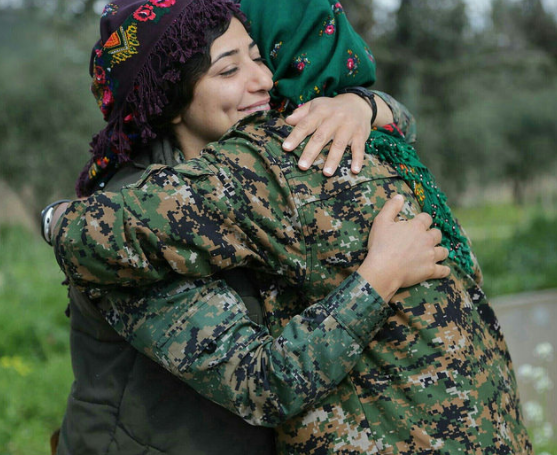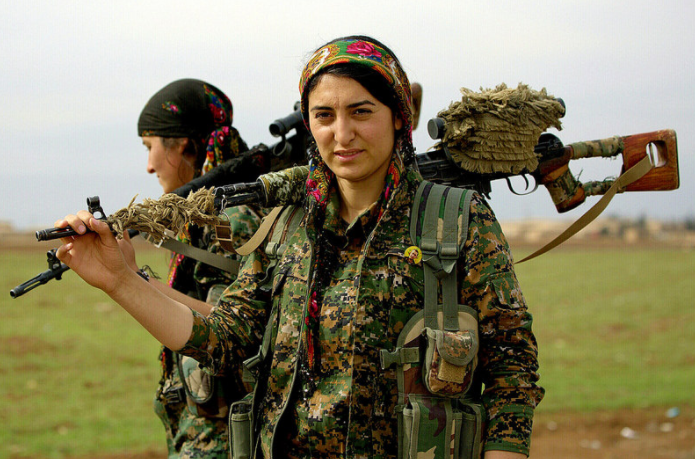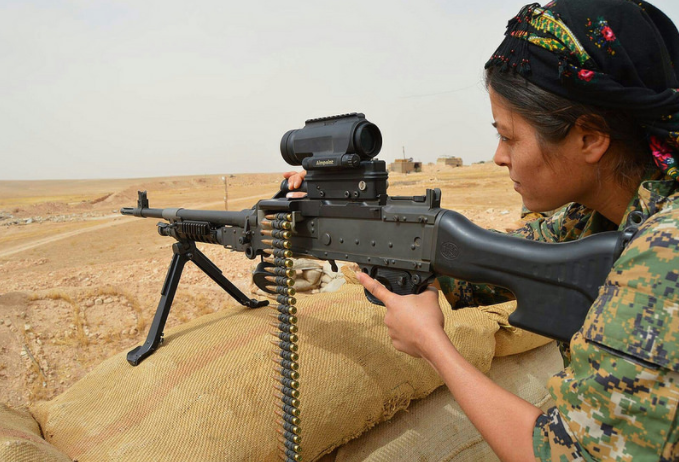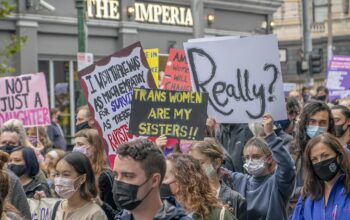How Islamophobia Took Root
What have you heard about Muslim women recently?
“They are meek.”
“They are oppressed.”
“Their hijab is a barricade.”
“Feminism is unknown to them. Equality is denied.”
But what if I told you these are gross generalities? There is a rich fabric of various women’s movements throughout the Middle East and the Muslim communities around the world. It is a revolution, though, quite apparently, an underground revolution. Being misunderstood or simply written off, it is a flower blooming in a dark room.
Before today’s events like the Arab Spring or the Syrian Civil War, Western interventionism killed millions of civilians, made wastelands out of cities, complicated international affairs to the point of proxy wars. It is questionable if interventionism is what solely caused the politics in today’s Middle East. I would say it is the reason why Islam has radicalized and Islamophobia persists in response. People are still trying to make sense of the aftermath of the War on Terror to this day. The United States sunk trillions of dollars into it for various reasons, either myths of weapons of mass destruction or patriotic visions of democratization in the Middle East. Throughout the early 2000’s, former president, George W. Bush, and his wife, Laura Bush, made claims that intervening would also liberate Muslim women. But do Muslim women really need saving? More so than other demographics? This assumption that Muslim women need to be saved has spurred prejudice against Muslim communities. The logic being that Muslims are supremely oppressive toward women. What can be made certain, Western countries are conflicted with how they respond to Muslims in their own borders: headlines calling for hijab and burqa bans from Germany to France. There is rampant Islamophobia. War can create peace, but it more often creates hatred.
Muslim Women Reclaiming Respect
Syria is an ongoing war for seven years. It all started with the idea for a ‘revolution of dignity.’ A people’s movement. By and large, it is still a people’s movement. Those who still remain in Syria have taken up arms, learned first aid, teach children left behind, care for abandoned animals. They are the ones who tend to Syria and protect its people against President Bashar Al-Assad’s regime, ISIS and other terrorist groups.
Made up of about 7,000 volunteer fighters between the ages of 18 and 40, the YPJ–or “Women’s Protection Unit”– is the all-female Kurdish military branch. Around 80 YPJ fighters are stationed in the Kurdish region in Syria, Rojava Kurdistan. The YPJ is trained to protect the area from ISIS, Assad’s Syrian Army and various terrorist groups, such as Al Qaeda. In 2014, the YPJ made headlines when they rescued a large Yazidis community from ISIS on Mount Sinjar.

They also made headlines for the death of 22-year-old Kurdish fighter, Asia Ramazan Anta, because she was beautiful. The headline was from pop culture juggernaut, The Sun. Their article’s message ignores the actual importance and bravery of YPJ fighters. Anta died on the frontlines protecting her community. To focus on the beauty of a fallen fighter objectifies and trivializes the fighter and her work.
Therein lies the hurdle Muslim women have to face: Western media, sexism and misunderstanding.
Nesrin Abdullah, the spokeswoman for YPJ, said to the Independent UK, “War is not only the liberation of land. We are also fighting for the liberation of women and men. If not, the patriarchal system will prevail once again.”
There is not another feminist movement like YPJ: a group of women who carry guns and train themselves to protect their communities against violent and patriarchal terrorist groups. All-female fighter groups are a startling and rare phenomenon. The YPJ is not representative of the entire Muslim feminist movement, but the YPJ is worth mentioning as a reminder that Muslim women in the Middle East cannot be stereotyped as “weak” and “docile.”
And yes, some of them do fight in hijabs.

Muslim women in the Middle East have various political leanings, values and religious beliefs that are on a spectrum, like any other demographic of women on any other corner of the planet. YPJ fighters are on one end and maybe a stay-at-home mom in a burqa living in Abu Dhabi is on the other end of the spectrum. Yet, there is a feminist movement in Abu Dhabi as well.
Again, media and prejudice overshadow these stories.
Deborah Williams at the New York Times recently penned an article about her time teaching at New York University’s portal campus in Abu Dhabi. It is titled, “Discovering Feminist Students in the Middle East.” Williams was the professor of a literature class where all of the books were by female authors. Her students happened to be all women as well. They came from Pakistan, Hong Kong, the United Arab Emirates, the United States and other areas of the world. The diversity created a globalist perspective of what it means to be a woman. Often, feminism came up in class discussion alongside the question of what it means to be a woman. The students from Abu Dhabi dubbed themselves feminists. As well as the woman from Hong Kong. Also, the woman from Pakistan. It seemed a necessity for most women in the class who were told to be married, keep quiet and be subservient. The students came to one conclusion they agreed on: the patriarchy is still very much alive everywhere. If they kept facing setbacks simply because of their gender, if their mothers kept telling them to get married and that their education at NYU seemed excessive and unecessary, then they say feminism is vital.
Moving Forward Together
In a world that is imagined to be divided and constructed along gender and ethnic lines, it is a more nuanced approach to have a globalist perspective that is open to pluralities and contradictions. Yes, there is sexism in the Middle East, but there is sexism in your home country, too. Yes there are Muslim women in the Middle East, but there are Muslim women in Western countries too. Some are even blonde, some are African, but all are Muslim in their own way. It may be difficult to stretch one’s mind to accept and appreciate each person in a group of nearly 2 billion, but it is at least correct to assume not all Muslims are the same in a group that large. In this diverse group of 2 billion, feminism exists despite an overwhelming bias that says otherwise.
Some Muslims see an overarching cause for this bias, or Islamophobia, that has taken root in the West. There is the abovementioned theory that much of the bias occurred because of Western interventionism. From Canada, Fariha Róisín, a writer and feminist, wrote about her Muslim culture and identity:
“Lots of people talk about the misogyny of Muslim culture, without examining the overwhelming patriarchal blunder of the West, without questioning why the Muslim world has been radicalized in the last fifty years, which has led to the stern crackdown on women…This is a time where I encourage all of us to try and understand context, and understand the beauty of Islam. I hope that we can decolonize together. When I was kid I wanted to be anything other than Muslim, today, with tears in my eyes, I say: ‘Mashallah, I am so lucky to be a Muslim woman.’”
Being Muslim is interpreted by its followers in diverse ways. This diversity lends itself to many iterations of Muslim feminism as well. Outsiders and Western feminists all over the world can benefit from seeing beyond prejudice to learn from their Muslim counterparts about the sacrifice, bravery and intellectualism of Muslim feminism.
If Westerners can look beyond prejudice and media, a great lesson on feminism can be brought out from the shadows and illuminated.
By Mariah Katz






